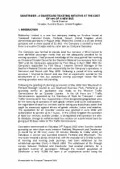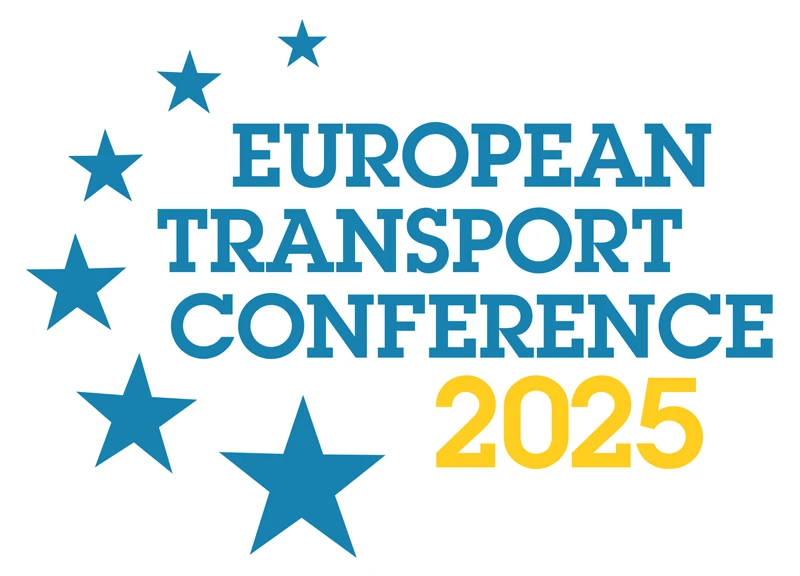-
Past ETC Papers

Browse, search and view papers from the past AET Conferences.
-
Members' Area

AET promotes networking and exchange of ideas, information and opportunities amongst members.
Conference Papers 2003
Strasbourg, France
ETC Conference Papers 2003
SmartRider - a smartcard ticketing initiative at the cost of 10% of a new bus
Seminar
Day 1 (8 Oct 2003), Local Public Transport, Smart Cards, 09:40 - 09:40
Status
Accepted, documents submitted
Authors
D Beaman, Sureline, UK
Abstract
INTRODUCTION
Mabberley Limited is a new bus company trading as Sureline based at Southwell Business Park, Portland, Dorset which commenced operations in August 2002. Operating a fleet of 9 Mercedes midibuses Sureline started operating an inter-urban route between Portland, Weymouth and Dorchester (a round trip of 56 kms) every 30 minutes Monday to Friday. This new service restored a direct service that had been withdrawn by the established operator (First) in March 2002 although the established operator continues to provide higher frequency services between Portland and Weymouth, and between Weymouth and Dorchester.
This paper will cover the following areas viz:-
1. Choice of smartcard ticketing technology against UK background
2. Evaluation of costs
3. Introduction and promotion of smartcards
4. An appraisal of smartcard users
5. Future developments of smartcard technology
CHOICE OF SMARTCARD TICKETING TECHNOLOGY
Whilst there have been a number of smartcard initiatives in the UK (e.g. Bradford, Cheshire, Devon, Ipswich, Northamptonshire and Northern Ireland) most of these have involved local authority involvement including financial support. In Cheshire, for example, the implementation of the Chester and East Flintshire Travelcard involved funding of £200,000 provided jointly to Cheshire county Council and Chester City Council through the Government's Capital Challenge programme. In some cases the application of smartcard technology has been for a specific purpose e.g. the first application of smartcard technology in Northern Ireland has been the issuing of 143,000 smartcards (Senior SmartPass) to concessionary fare passengers which was implemented from May 2002. As far as we are aware the Sureline initiative is one of the few smartcard applications in the UK that has been introduced at the full commercial risk of the operator. It is certainly one of the smallest applications of smartcard ticketing technology that has been introduced at the full commercial risk of a bus operator.
Sureline wished to provide passengers with a ticketing system that would attract passengers to its new service as well as providing an attractive ticketing alternative to the established operator (First) with whom Sureline competes for local passengers between Portland and Weymouth, and between Weymouth and Dorchester. After careful consideration the company chose to fit its vehicles with the latest generation Wayfarer TGX ticket machines equipped with smartcard readers.
Sureline?s smartcard readers are ISO compatible which represents the standard that has been adopted within the public transport industry.
EVALUATION OF COSTS
The implementation of smartcard ticketing technology involves significant costs. Fitting each Wayfarer TGX ticket machine with a smartcard reader increased the cost of each ticket machine by over 50% ? a basic Wayfarer TGX ticket machine costs £700 (?1,050) whilst a Wayfarer TGX ticket machine costs £1,100 (?1,650). As far as the commissioning and issuing of smartcards was concerned it had been hoped to undertake this task through on bus ticket machines but, although not technically impossible, performing this task through on bus ticket machines posed a number of problems. The Company, therefore, decided to purchase a POS (Point of Sale) ticket machine to first commission and issue smartcards - this cost a further £1,200 (?1,800). In addition the Company also had to purchase the smartcards themselves - because of the relatively small scale of the application the unit cost was relatively high. Initially the Company ordered 250 smartcards at a unit cost of £3.40p (?5) - this unit cost would not have been lower unless a much more significant number of smartcards had been ordered.
There were no other additional software costs - the necessary software configuration was already included by Wayfarer in the cost of the ticket machine configuration and was already an integral part of the Inform management information software package that had been purchased to analyse the information collected by the ticket machines. The additional cost of implementing a smartcard ticketing system totals £6,050 (? 26,050).
The implementation cost was, therefore, less than 10% than the cost of a new bus. Sureline has, however, commenced operations with 9 year old Mercedes midibuses that have been purchased at a significantly lower cost than purchasing new vehicles - even so the cost associated with the implementation of smartcard ticketing technology has represented less than 5% of the company's start up costs. Such additional costs are, however, sometimes more easily accommodated within start up costs since additional costs are sometimes more difficult to bear at a later date.
INTRODUCTION AND PROMOTION OF SMARTCARDS
The smartcards themselves are promoted as ?SmartRider? and the system went live in November 2002. Initially a small number of regular passengers were invited to test the system to ensure that there were no technical problems. The first SmartRider cards were sold to passengers from December and within less than one month currently there are 25 SmartRider cards in circulation even though there has not, as yet, been any promotion of SmartRider cards. Currently further details of SmartRider cards and an application form are available on the Company's website (http://www.surelinebuses.co.uk). Application forms are also available on request from the Company's offices and from all Sureline drivers.
As far as the means of encouraging passengers to purchase SmartRider cards is concerned other smartcard schemes offer a wide range of incentives. First Bradford, for example, offers a system of 'Bus Miles' (with 1 bus mile being awarded for every £1 spent and 100 bus miles being converted into £1 of stored value - effectively a discount of 1%) whilst the Cheshire scheme offers 10% extra travel. The majority of bus passengers generally have limited amounts of disposable income and are, therefore, more interested in the fare that they actually pay. Sureline, therefore, decided to first offer a stored value ('electronic purse') smartcard. The first type of SmartRider card to be introduced, therefore, offers regular passengers a 10% discount on cash fares (with cash fares for most journeys already lower than the fares charged by the established operator). It was Sureline's view that a 10% discount on cash fares would be perceived as offering greater value than offering 10% extra travel. This discount applies to all passengers purchasing SmartRider cards ? adults, children and concessionary passengers.
Attention has already been drawn to the fact that SmartRider cards have to be first commissioned and issued through the company?s offices but can then be recharged by the driver of any Sureline bus that a passenger boards.
Despite the high initial production cost of SmartRider cards these are offered to passengers at no cost so long as there is a minimum purchase of £10 (?15) of bus travel. Most other smartcard schemes require an administration fee to be paid to contribute either in part or in full towards the production cost of the smartcard itself. The Cheshire Travelcard, for example, requires each passenger to pay a £1.50p registration fee (?2.50). Such administration charges are, however, seen by the company as discouraging use of smartcards. The minimum amount required to recharge a SmartRider card is £5 (?7.50).
AN APPRAISAL OF SMARTCARD USERS
At the time of writing this abstract the application of smartcard ticketing technology within Sureline is still at an early stage of development. A promotional campaign is currently being devised - the objective of such a promotional campaign will primarily be to encourage passengers currently using either other modes of transport (e.g. cars) or the other bus operator to use Sureline services. Encouraging existing Sureline passengers to use SmartRider cards will merely reduce cash revenue by 10%. During the early Summer it is also proposed to undertake a questionnaire survey of holders of SmartRider cards to establish demographic characteristics, frequency of bus use and journey purposes to evaluate the extent to which the promotional campaign has achieved its desired objective. Details of the promotional campaign and analysis of the survey will be given in the full written paper to be submitted in August.
FUTURE DEVELOPMENTS OF SMARTCARD TECHNOLOGY
Smartcard technology offers a wide range of possible future options. At this stage only a stored value smartcard has been introduced but consideration is being given to other applications - in due course unlimited travel pass and multi journey versions of the SmartRider card may be introduced. Wider applications are also obviously possible to allow SmartRider cards to be used for other purposes or to allow other smartcards (e.g. bank debit cards) to be used for purchasing bus travel. There is also a longer term hope of introducing a multi-modal, nationwide smartcard ticketing system across the UK. Such wider applications of smartcard technology, whilst technically feasible, would involve a wider range of involved parties each with their specific interests and needs which cause conflicts. It seems at this stage that whilst we have the technology our first priority should be to learn how to walk rather than run!
Documents:

Association For
European Transport
Forester House
Doctors Lane
Henley-in-Arden
Warwickshire, UK
B95 5AW
+44 (0) 15 64 793552
VAT number: 710 1866 64
Conference Supporters & Endorsers




Legal Entity
The Association for European Transport is registered as an Association ('vereniging') with the Chamber of Commerce for Haaglanden in The Netherlands under company number 27170096.
Built on Zenario




